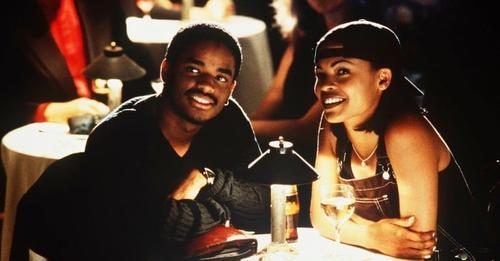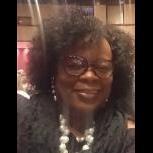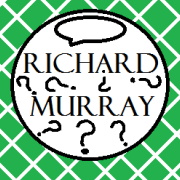-
Posts
4,155 -
Joined
-
Last visited
-
Days Won
120
richardmurray's Achievements
Single Status Update
See all updates by richardmurray
-

All were asked to the following article in the group Movies That Move We < https://www.youtube.com/channel/UCqYM90UgloorX_NbqqZRCfw >
Is there a film you would add to this list? Is there a film that you think shouldn’t be on this list? Name them and tell us why!
ARTICLE BEGIN
Five films that could never come out in 2022
OPINION: These movies aged like cottage cheese left out in the sun.
Dustin Seibert Jan 21, 2022
Being a Gen X-er/elder millennial all but demands that we scrutinize the media from our formative years.Unlike our Baby Boomer parents, who don’t really care as much about evolving social propriety, we tend to have an almost visceral response to the stuff we enjoyed in the 1980s and 1990s that didn’t age well. Presumably, it’s happened to us all: We watch the digital version of a film we used to wear out on VHS, or we stream a jam we used to own on cassette, only to clutch our teeth and let out an “Eeeeeeee.”
Below are several of those films that elicit such a response. In some cases, it’s one scene or plotline; in one case, you can just throw the entire film away. Note that this list is far from exhaustive and doesn’t include films in which the offensiveness is intended. (see: Blazing Saddles)Purple Rain (1984)
My favorite terrible movie of all time. I’ve seen Purple Rain more times than I can count over the last 38 years since my mama’s massive Prince fandom circumvented any concerns about her kid watching R-rated content.
But it was as an adult that I realized no one involved in the making of this film gave even a tincture of a damn about women. From The Kid’s interminable petulance (and ultimate violence) toward Apollonia (Apollonia Kotero) to tricking her into jumping topless in “Lake Minnetonka” to the marginalization of Wendy (Wendy Melvoin) and Lisa (Lisa Coleman) until it benefited The Kid, Albert Magnoli’s musical drama is steeped in Olympic-level misogyny.The worst scene, however, is when Morris (Morris Day) is confronted with one of his “sexies,” whom Jerome (Jerome Benton) picks up and tosses in a dumpster. Twitter would be on fire if, say, Bruno Mars made a movie pulling this s— in 2022.
The Best Man (1999)
Perhaps not as egregious as the other films on this list, but The Best Man delves into the Madonna-whore complex and what constitutes a “good” man, and, I think, inadvertently hoists up outmoded ideas.
The core conflict lies in a semi-fictional book that Harper (Taye Diggs) wrote based on his quartet of homies. Professional athlete and recovering man-whore Lance (Morris Chestnut) learns just before the wedding that fiancé Mia (Monica Calhoun) smashed Harper back in college while he was cheating on her left, right and sideways and is ready to blow the whole wedding to pieces over it. Because God forbid a woman demonstrates some sexual agency before she hangs it up.Shelby (Melissa De Sousa) is a one-note shrew of a girlfriend, and while the first film did well with Candy, the stripper with a heart of gold (Regina Hall) linking with the pusillanimous “good guy” Murch (Harold Perrineau), they throw the goodwill of that plotline out the window in the sequel, The Best Man Holiday, when Murch jeopardizes their marriage after receiving a video of Candy living her best sexual life before they met. Meanwhile, the capricious “bad guy” Quentin (Terrence Howard) is the only character living out their truth in either film.
The Best Man isn’t exactly unrealistic in its core depictions, but the original would light up social media if it were released in 2022.
Love Jones (1997)
Perhaps the most divisive film on this list (read: you might get cut amid debates), the entirety of Love Jones isn’t terribly problematic, and I appreciate the way it handles the complicated nuances of marriage via Isaiah Washington’s character.
But one sequence is a no-go: Larenz Tate’s Darius Lovehall shows up at the house of Nina Mosley (Nia Long) only because he jacked Nina’s address from a check she writes at the record store. And Darius’ girl, Sheila (Bernadette L. Clarke), who works at the record store, allows it.
The film presents it as a noble whatever-it-takes romantic gesture. But it screams “stalker,” and the 2022 version of Nina would’ve likely tased Darius in the nuts and called the cops.
Ace Ventura: When Nature Calls (1995)
Both of Jim Carrey’s star-making Ace Ventura films wouldn’t fly in the Age of Twitter—the first movie is rife with homophobia. But the sequel features a plotline involving a fictional indigenous African tribe whose customs are played for laughs in contrast to Ace’s western sensibilities. Any African stereotype you’d imagine white Westerners harbor is probably in the film.
Tommy Davidson portrays tribe member “Tiny Warrior,” speaking no actual words in lieu of animal noises meant to portray him as less human, more rabid rodent. That the film has the distinction of being America’s first exposure to the lovely Sophie Okonedo doesn’t absolve it of its sins.
Soul Man (1986)
The apotheosis of obsolete filmmaking, the most offensive thing about this film isn’t the fact that the protagonist Mark Watson (C. Thomas Howell) complains about tuition and fees at Harvard Law School totaling just over $10,000 (which will probably buy you one textbook and a sandwich in 2022).It’s that the entire conceit of the film involves a white man exploiting affirmative-action scholarship benefits by enrolling in and attending the school in blackface. Considering we’ve had a blackface reckoning in recent years that even caught up the beloved prime minister of Canada and that we’re forced to have the same god—m conversation with white folks every Halloween, Soul Man wouldn’t have made it past a first script draft in 2022.
Apparently, the film was even controversial when it dropped in the mid-1980s. But social media was decades away from being a thing, so it wasn’t around to prevent Soul Man from becoming a commercial success.
BONUS: Every black film that exploited LGBTQ+ people
It would probably blow the mind of your average 20-year-old to see how reckless Hollywood was with the LGBTQ+ community a couple of decades ago. Film and television were full of either latent or blatant examples of rank homophobia.A Low Down Dirty Shame (1994) featured Wayman (Corwin Hawkins), a gay Black man who existed only to be demeaned by Keenan Ivory Wayans’ Shame. The entire talky twist of The Crying Game (1992) involves the “reveal” of the deceitful trans woman.
Also, figure every film and television show involving a dude dressing up as a large, “unattractive” Black woman is predicated on some degree of transphobia. I’m looking at you, Wanda and Sheneneh.
ARTICLE END
A QUICK THOUGHT TO THE ARTICLE
It start with a lot of negative bias to those in certain age ranges, while supposes support to women from the physical violence or subjegation of men. It also has a large amount of cultural negative bias. Remember, race is any form of classification/rank/ordering from phenotype to gender to age to cultural beliefs to geography to releigion to religion to... you comprehend.
MY THOUGHTS TO EACH FILM IN THE LIST
Purple Rain is interesting. I remember hearing, a video recording of Prince, speak on a real event where a member of his team threw Vanity/Denise into his pool, and when I heard that story I thought of this scene. In the context of the article, it opens up alot in terms of the level of mysogyny.
But, the greater issue is misogyny. I saw a halftime show in which Purple Rain was chanted by many people who clearly were in the ambiance of the artist formerly known as Prince as well as their thoughts of loving ones whose spirits have flown, which the song alludes too.
Suggesting that this movie can not be seen, for a scene of abuse toward a woman from a man, is discounting how many people heard that song through the movie. Is it a wareranted sacrifice, I wonder?
As for Prince's characters mimicry of his father's abuse, that is actually the stories point. Prince's character was evolving in a film. Like bobba Fett from being the lone man killer that many of the characters fans demand or want to the killer who has gained from priceless experience a level of growth that in all living things, takes time.
The question is, does Prince's characters modulation not warrant to be seen? Is the argument from the philosophy the article writer espouses that the modern audience can not handle watching the change in a character, they can only accept witnessing the final result?I only saw a few scenes of the Best Man. I admit, I have little liking or patience to these black group film dramas. To those who enjoy that style of art it is entertaining but for me, I can't stomach it long as a genre.
I do know of the basic plot though. I don't see how the movie will be banned for portraying characters that share traits with many living people, in the same way, purple rain does to.
But that leads to another question, is this about presenting fantasy humans? I rephrase, is this movement of cancelling culture to only allow one cultural mold? if so, how can art be deemed in it free to express all culture?Love Jones scenario is like in the Best Man. Stalking is human, is it denied by not showing it in a film? and by not showing it is art improved.
I never saw any Ace Ventura film, so I admit, I can have it expunged as I am not a fan of jim carrey's comedy for the most part in general, yes I never saw Dumb and dumb series as well.
But to the theme, people who dislike homosexuals is not new nor will go away throughout all humanity. And, though few to no movies offer the reverse insult, many black people don't think positively of white communities.I want to speak about Rae Dawn Chong and James Earl Jones, when it comes to the film "Soul Man". Rae Dawn Chong contends the film isn't negatively biased. And this goes to the penultimate issue. In the end, who determines how another is meant to see the world/humanity/life?
This battle over what art should be viewed from the times when non white europeans were disallowed under white european domination or in the complex multiracial landscape of the usa, with each tribe trying to make one cultural perspective dominant, shows the dysfunction of the attempt. No culture ever truly dies, it at the most diminished becomes a private culture, but cultures never die.
Spike Lee and the impotent N.A.A.C.P. made this film a battleground but the issue of black owned film production or black people in the mechanics of the industry had no words from said people except one day it will happen or beg whites. Rae Dawn Chong was right, it was all talk. Talk for media points.A bonus, Al SHarpton who I do not usually concur too explained the idea behind the self righteous non violent movement, brilliantly. I paraphrase him. The non violent mantra is not merely about stopping those who utilize violence against you but not allowing yourself to utilize violence. This paraphrasing is the entire idea behind the bonus section in the article.
But, that is self righteous. To tell someone to hold themselves to a cultural view, regardless of anything is not only self rightoeus but goes back to the entire flaw of the cancel culture strategem or similar cultural blocks from the past from one community to another.
WHy don't black parents speak of Nat Turner or Jean Jacques Dessalines? what did either do wrong that does not warrant mention? they acted violently against those who were violent towards them?
Their actions have been cancelled by many black people long before cancel culture, but has that improved the collective lot of the black community, has it changed the lot of the white community ? the answer is no.NAME THE FILMS I WILL ADD? NAME THE FILMS THAT SHOULDN'T BE ON THIS LIST?
None and All. I will paraphrase a white jewish female writer: art can not be the battleground for culture.
I know she is right. Not seeing an action, does not delete an action. On the other hand, seeing an action does not embolden an action.
The whole concept of not showing certain arts based on the messages in them, is based on the idea that it will influence culture. But is that true?
I use two scenarios in human history as my proof they do not.
The Sars-Cov-2 era in NYC, specifically, when the city had a near total shut down of activity.
During that time in New York City, the advertised freethinking capitol in the United States of America, the levels of abuse from men to women, from adult male children to their senior female parents , rose by a huge percent. Was said increase of a certain activity based on a film? was said increase based on a music video or video game?
What does the first scenario prove? That misogyny's source is not media. When people were forced into their homes side their supposed loving ones they got more violent, not less. In particular men showed a increased dislike toward the women they live with, being forced to be next to them. IS media the source of the misogyny... or is it how we humans build or maintain relationships? The last point being, can not showing an action in media help to yield better relationships. I say no.The second scenario is media by people of color, people of color defined as non white europeans, in the age of white european imperial power. MEaning from the 1400s to the end of world war two < which began the first phase in the era of white statian imperial power, commonly called the cold war >
In the white european imperial power age people of color, made art that was often chastized, or burned, or blockaded from the view of people of color themselves, but they made it. This artwork didn't free people of color or stop white european power. But it was symbols of another culture than the one in power.
What does the second scenario prove? art doesn't change the alignments in humanity. It comes from the soul, and can inpsire humans, but can not deflect bullets, can not make laws. And it is bullets and laws that dictate the alignment of humans in humanity.Sequentially, I add no film to this and think all films should not be present in it. The list is dysfunctional.
I am not a NAzi, I have no desire to be white or german or aryan. But I think the night marches are beautiful from the nazis. The premise of waging cultural war through art is suggesting, the human individual or collective can be so moved by art that it dictates who they are or who they want to be. I oppose that viewpoint. I think history proves my opposition correct.Article U.R.L.
https://thegrio.com/2022/01/21/five-films-that-could-never-come-out-in-2022/








.thumb.jpg.ed52910791d00308abb8c218695bec88.jpg)


